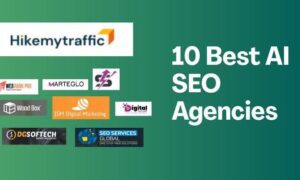For Sheera Eby, a veteran growth strategist who has spent two decades building marketing engines for Fortune 500s and SaaS disruptors, AI isn’t just a tool, it’s the foundation for a new kind of growth. “AI is becoming the foundation of how companies can compete and win,” she says. “The ones who learn to harness it will lead the next generation.” Eby’s approach is not about a quick fix but about building smarter systems that drive scalable, predictable growth.
A New Formula for a Decades-Old Problem
Marketing has always promised personalization at scale, but for decades, it was a promise few could deliver. Content creation was a bottleneck, and gaining insights from customer data was often a slow, manual process. Eby knows this firsthand. Her resume shows a track record of building and optimizing end-to-end marketing funnels, from her time at Johnson Controls, where she built a closed-loop lead generation capability that generated over $8M in SaaS pipeline, to her most recent role where she doubled the number of leads. She’s seen the old playbook and now understands its limitations.
AI has become a turning point. “The biggest mistake in an AI transformation isn’t a bad tool,” she says. “It’s a team that isn’t clear or empowered on how to use it.” To combat this, Eby leads by example. She personally experiments with tools like Google’s Gemini and Make.com, and she shares her findings with her teams. One such “aha moment” came from using an AI tool to create a video in 15 minutes—a process that would have taken hours or days before. “It was empowering,” she recalls. “This is going to be game-changing for everybody.”
The Multiplier Effect: Efficiency and Effectiveness
Eby is quick to point out that AI’s value lies in both efficiency and effectiveness. Where efficiency often focuses on automation and workflow optimization, effectiveness centers on improving outcomes, especially personalization. “You can now automate things at a level you just couldn’t have before. That means creating a personalized experience is accessible from both a cost and resource standpoint.”
True personalization, Eby insists, is about leveraging behavioral signals and transactional history to understand real customer intent. A recent LinkedIn post highlighted her belief that “your customers are telling you how to grow, but you’re not listening.” The solution? Building systems that automate feedback analysis. For example, she suggests using AI to “analyze these 500 support tickets and identify the top 3 recurring pain points.” This is how you create a “continuous, profitable feedback loop that fuels innovation.”
Building a Growth Engine from Scratch
In her career, Eby has built multiple demand generation and lead-gen engines from scratch, including for two e-learning companies. This experience gives her a unique perspective on how AI is transforming demand generation, especially for startups and high-growth companies. Her LinkedIn posts consistently emphasize that a “small team can feel like a disadvantage, but it’s your biggest asset. It forces you to be lean, agile, and obsessed with efficiency.” AI provides the leverage to achieve hyper-growth without the headcount. Instead of hiring your way out of every bottleneck, you build smarter systems.
For instance, she’s used AI to go beyond generic outreach and build automated systems that deliver personalized cold emails and follow-ups at scale. The LinkedIn post on this topic explains how these systems allow teams to “focus on building relationships with qualified prospects, not just chasing down contact info.” She also emphasizes AI’s role in analytics. Traditional reporting tools have been strong, but AI enables faster insights and more precise pivots. “The biggest thing I’m seeing right now is the pace we’re moving. Things become outdated quickly. Tools that worked last year may already be replaced by better, more cost-effective options. Success depends on staying adaptable.”
A Human-Centric Approach to Transformation
In a world where many leaders fear AI will replace human creativity, Eby champions a human-centric approach. Her philosophy is to use AI to eliminate low-value, repeatable work, freeing teams to focus on strategy and creativity. As she noted in a post about leadership, “automation isn’t about eliminating jobs; it’s about eliminating low value, repeatable work.” This is how she has built and coached high-performing teams of 35+ people. Her focus on combining empathy and accountability is a core part of her philosophy. Eby believes the best leaders “don’t choose between a heart and high standards. They lead with both.” This human-first mindset is what allows her to not just implement tools, but to successfully drive digital transformation and foster a culture of data-driven experimentation.
Sheera Eby’s perspective is a powerful reminder that the new era of marketing isn’t about replacing marketers with AI; it’s about equipping them with the tools and systems to deliver meaningful, data-driven experiences that truly grow pipelines.



































